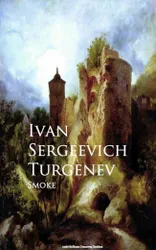An examination of A Lear of the Steppes is of especial interest to authors, as the story is so exquisite in its structure, so overwhelming in its effects, that it exposes the artificiality of the great majority of the clever works of art in fiction. A Lear of the Steppes is great in art because it is a living organic whole, springing from the deep roots of life itself; and the innumerable works of art that are fabricated and pasted together from an ingenious plan—works that do not grow from the inevitability of things—appear at once insignificant or false in comparison.
In examining the art, the artist will note that Turgenev's method of introducing his story is a lesson in sincerity. Harlov, the Lear of the story, is brought forward with such force on the threshold that all eyes resting on his figure[vi] cannot but follow his after movements. And absolute conviction gained, all the artist's artful after-devices and subtle presentations and side-lights on the story are not apparent under the straightforward ease and the seeming carelessness with which the narrator describes his boyish memories. Then, Harlov's household, his two daughters, and a crowd of minor characters, are brought before us as persons in the tragedy, and we see that all these people are living each from the innate laws of his being, apparently independently of the author's scheme. This conviction, that the author has no pre-arranged plan, convinces us that in the story we are living a piece of life: here we are verily plunging into life itself...









